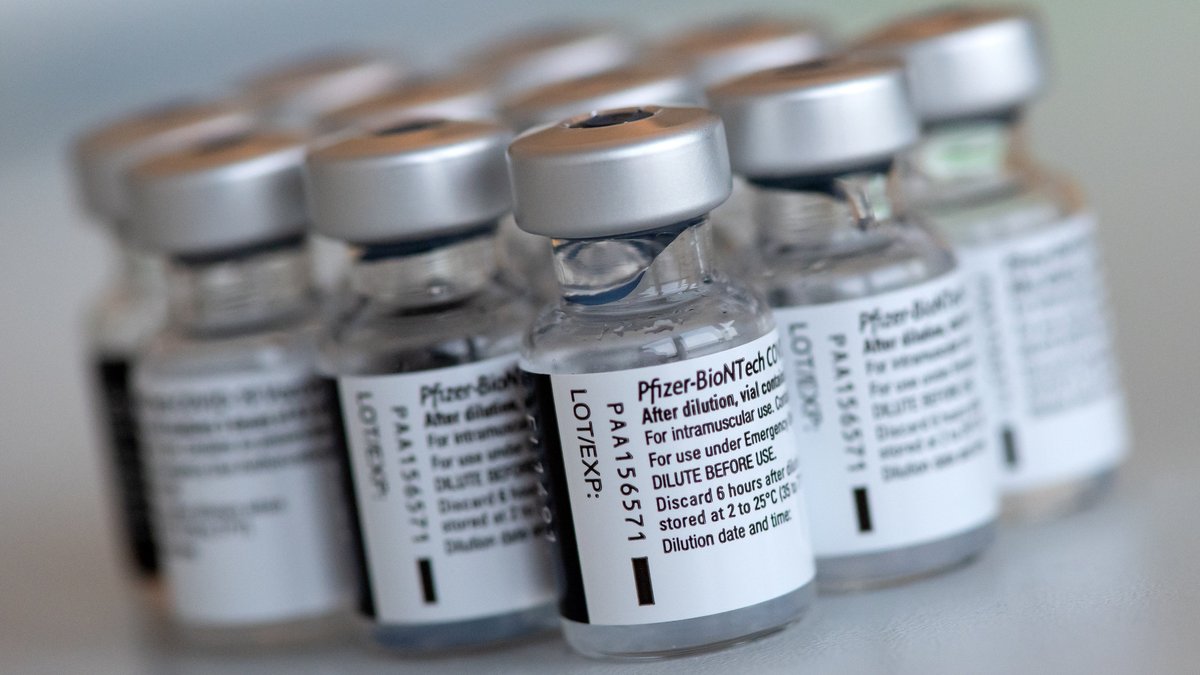First of all, you need to know how mRNA vaccines work: mRNA stands for messenger RNA. The mRNA vaccines do not use inactivated or attenuated pathogens for immunisation like conventional vaccines. Instead, the vaccine confronts a few body cells with parts of the genetic information of the virus, which is stored in the mRNA. This provides the blueprint for individual proteins of the virus, which are also called antigens. The body thus reproduces (harmless parts of) the virus, activates the immune system and, if successful, elicits the protective immune response.
Simple answer with complicated explanation
The answer to the question of whether the so-called mRNA vaccine can change the genetic material can be summed up in one word: "No", says Leif Erik Sander from the Charité University Hospital in Berlin. And he explains why this is the case: In humans, the DNA is located in the cell nucleus, where it is surrounded by an envelope. RNA is located outside the cell nucleus and also has a different chemical structure than DNA. In order to be integrated into DNA, RNA would first have to enter the cell nucleus, then be transformed into DNA and then be integrated into the genome through a specific enzyme.
But this enzyme would first have to be present in the body. Only very, very few viruses - such as HIV, which can cause AIDS - contain this enzyme called "reverse transcriptase". The SARS-CoV-2 virus does not have this enzyme, so there would already have to be an infection with one of these few other viruses. But even then, the case would be almost impossible, as various scientists point out.
Thought experiment with an improbable outcome
A geneticist at the University of Jena, who explicitly "does not see himself as an expert in the field", makes the following thought experiment on mdr Wissen. "In principle, it would be conceivable that a patient already has an infection with active retroviruses. But that is unlikely. Or he/she has active retrotransposons [editor's note: These are certain transformed DNA sections], which is very unlikely. And thus he/she would have reverse transcriptase in some cells of his body. That could convert the mRNA from the vaccine and then integrate the DNA into the genome." But even then, according to mdr Wissen, this would only affect some cells, not the entire genome. And: The worst consequence of this extremely unlikely case would be that the cell - due to the vaccination - would be recognised by the immune system as part of the virus and would be fought against.
What else speaks against it: our cells contain a lot of RNA. If RNA was permanently integrated into the genome, "we would soon have no more space in the genome", says Leif Erik Sander from Charité University Hospital in Berlin. And: The mRNA of the vaccine is not fundamentally different from other RNA. Therefore, if it was possible, the conversion of mRNA into DNA would theoretically already be happening now.
Conclusion: All experts interviewed by #Faktenfuchs consider it practically impossible that an mRNA vaccine can change DNA. This is because mRNA is located outside the cell nucleus. It has a different structure than DNA and therefore cannot be integrated by it.
"Darüber spricht Bayern": Der neue BR24-Newsletter informiert Sie immer montags bis freitags zum Feierabend über das Wichtigste vom Tag auf einen Blick – kompakt und direkt in Ihrem privaten Postfach. Hier geht’s zur Anmeldung!


